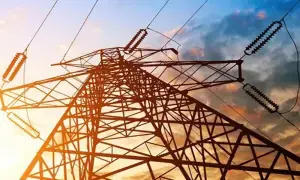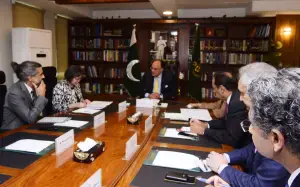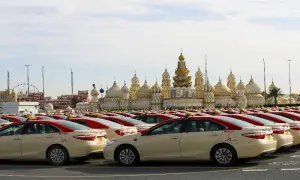A Miftah Ismail crash course on fixing Pakistan’s economy
4 min readLive within your means, increase exports, and improve farm efficiency and education are the four ways forward for Pakistan’s economy, said Finance Minister Miftah Ismail on Friday.
“We only follow the import substitution model,” he said while addressing a discussion on the ‘Current State of Pakistan’s Economy’ with economist Akbar Zaidi at the Institute of Business Administration in Karachi. “Following this, we don’t promote exports and this model, in the end, does not do any good for us.”
The finance chief’s arguments centred on Pakistan’s economy, dealing with the International Monetary Fund, tax and flood damages.
Way forward
- Live within your means as the world will not give you the money. “We have not been people who borrow money and use it wisely. Here it is profligacy.”
- Increase exports. The government tried to impose a tax on export industries which do not export 10% of their production, however, it shelved it due to the rains.
- Improve farm efficiency: Miftah shared that Pakistan would import $5 billion to $6 billion in oil seed this year which would be more than $2 billion than it did the previous year. “The biggest threat now is dry ground for wheat. By mid-October, Sindh should start farming for the wheat crop or else we will have a bleak spring and flour is going to get expensive,” he warned, adding that CM Murad Ali Shah has to drain inundated fields.
- Educating children. He quoted Greek philosopher Aristotle that, ‘parenting is the most important task’ while stressing the importance of education as it can resolve society’s ills.

‘Boom and bust cycle’
Pakistan can easily achieve a target of 4% growth, however, hitting 5% to 6% is difficult as it increases the current account deficit.
Miftah described this as a ‘boom and bust cycle’ (a process of economic expansion and contraction that occurs repeatedly). He reasoned that people here were not imaginative as only the import substitution model was pursued to improve the economy.
He reiterated the absence of inclusive growth, which Prime Minister Shehbaz Sharif had said while announcing the super tax on June 24.

Reluctance to pay tax
Miftah said what many people have said before: no one was willing to pay taxes in Pakistan.
He assured that the government would impose taxes on traders, who were exempted from the measure last month.
There are 2.3 million shopkeepers in Pakistan who gave Rs5.70 billion in tax last year and the government had planned to tax them Rs100 a day. But, traders rejected this because the government did not set slabs for small traders.
“The fundamental mistake I did was not consult small traders. There are 50% of shop owners who use less than 50 units of electricity and 72% are those who use 150,” he said.
“I will impose an ad valorem tax (a tax based on the assessed value of an item, such as real estate or personal property) which will be fairer. It will be Rs27 billion. We are also taking tax from truck owners.”
Pakistan reported 27.3% inflation, which is the highest in 47 years, on a year-on-year basis in August 2022.
“I will take the petroleum development levy to Rs50 by April,” he said as he explained one of the IMF’s conditions. Starting with Rs10, the petroleum development levy has now gone to Rs37.50.
“We will default if we do not take such decisions,” Miftah said, adding that the PM’s decision to waive the fuel adjustment charge for people using less than 300 units of electricity would last two months.
“There will be pain.”

‘Livid’ IMF
He explained that the IMF was livid when the government approached it to restart the bailout programme as the PTI had backtracked by shelling out fuel subsidies.
He shared slides to prove his point.
- 19% of petrol is used by 14% of the richest Pakistanis and the PTI government was subsidising them. As a result Rs781 billion worth of subsidy was provided.
Population, education combination
Pakistan’s population is growing but its literacy rate was not good as compared to other countries.
“The average Bangladeshi is three years more educated than you and can live up to five years more than you,” he said and stressed the need for family planning.
“One out of 10 out-of-school children in the world is from Pakistan,” he said, “we are a small portion of the world’s population and yet we have 10% of illiterate kids in the country.”
Economy by Miftah
- $2.73 billion of remittances received last month
- $2.23 billion earned in exports
- Exporters forwarded $0.98 billion
- Exchange $0.95 billion
- Pakistan has a total of $6.98 billion worth of inflows
Outflows
- $2.23 billion spent on oil and gas
- $4.08 billion on Other items
- The total comes to $6.8 billion
Miftah rejected any impression of floating dollars in the market after the global lender transferred the first tranche of $1.17 billion into the SBP account.
For the latest news, follow us on Twitter @Aaj_Urdu. We are also on Facebook, Instagram and YouTube.


























Comments are closed on this story.